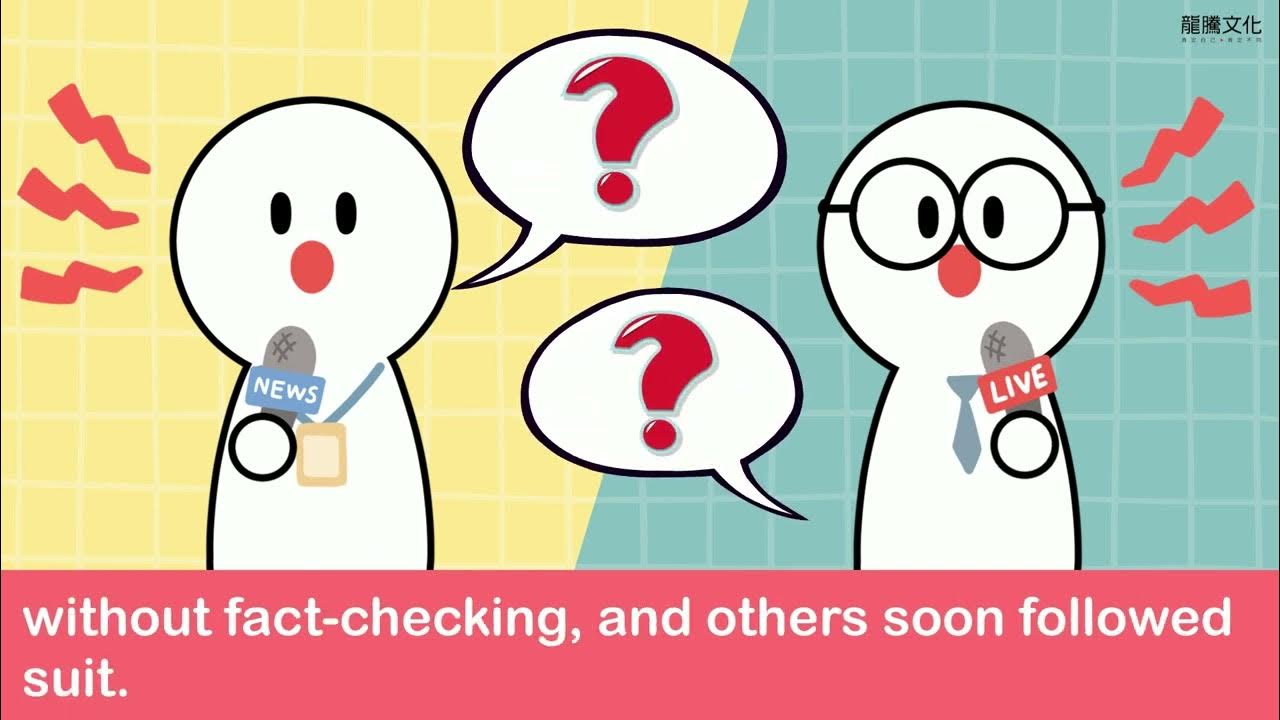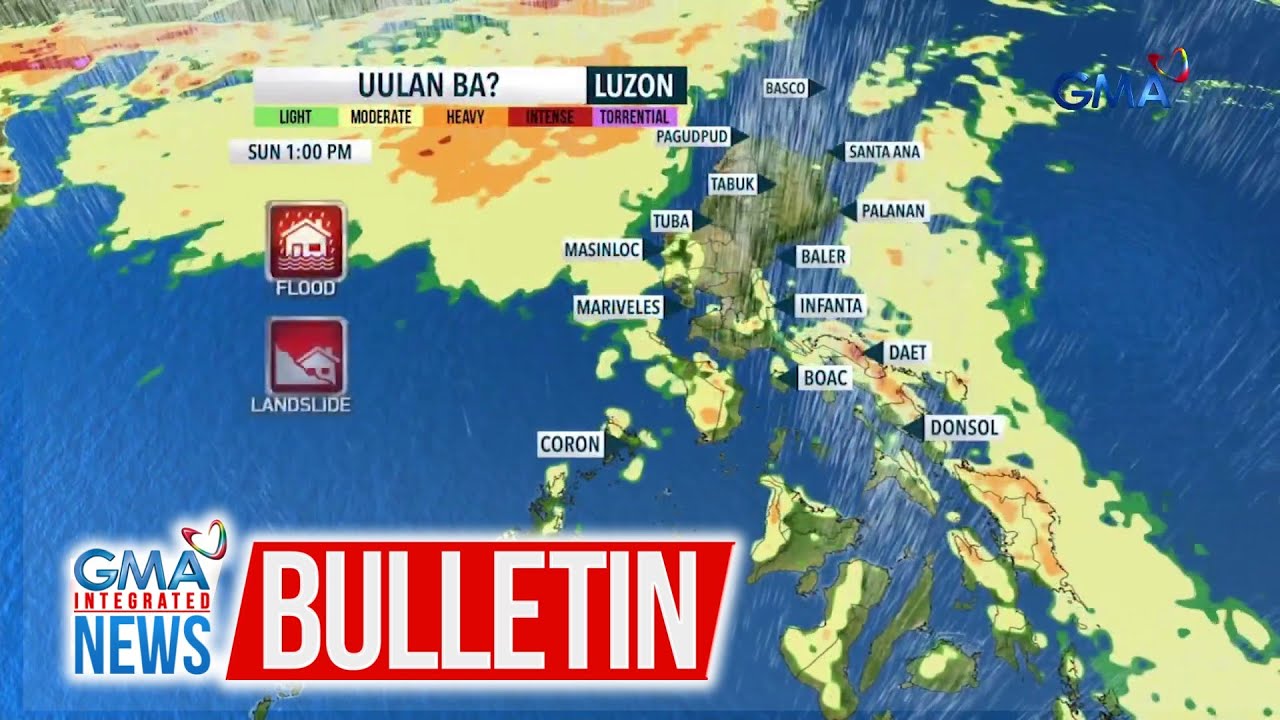Fact Checking (With CONNIE SISON)
Summary
TLDRConnie Sison, a reporter for GMA Integrated News, addresses the prevalence of fake news on social media, particularly through enticing giveaways and raffles. She emphasizes the importance of fact-checking and outlines a three-step process: verifying the fact-checkability of posts, scrutinizing sources, and presenting accurate information. Sison debunks specific false claims, such as a fake Pope photo and a crocodile stunt, and stresses the responsibility to verify information before sharing.
Takeaways
- 😀 Fake giveaways and raffles on social media are increasingly common and trick people into falling for scams.
- 😕 A Facebook post posing as a fan group of a popular supermarket chain claimed to give away 'customer gift bags,' but it was fake.
- 🤔 Fact-checking is a method to verify the truthfulness of the information we consume on social media and in the news.
- 🔍 The steps of fact-checking include determining if the post is fact-checkable, verifying information through reliable sources, and presenting the correct information.
- 📛 Fake news can use fake logos, manipulated images, and even names of trusted institutions to deceive people.
- 🛑 Always check official pages and sources, as fake accounts often lack the credentials and following of real organizations.
- 👎 A viral post about a diabetes-curing milk formula called Glufarelin was debunked as fake by both ABS-CBN News and the Philippine General Hospital.
- 💬 It's essential to write clear and accessible fact-checks, including context, sources, and explanations for any complex terms.
- 🧠 Examples of fake news include AI-generated photos of Pope Francis and false reports of a crocodile in Marikina River.
- 🤨 Misleading or fake information can cause confusion and unnecessary panic, which is why fact-checking and careful sharing are crucial.
Q & A
What is the main theme of Connie Sison's report?
-The main theme is about the importance of fact-checking and how to avoid falling victim to fake news and misinformation on social media.
Why have giveaways and raffles become more popular recently?
-Giveaways and raffles have become popular because of the rising prices of goods, making free groceries and similar offers more enticing to people.
What was the fake grocery raffle on Facebook about?
-A fake Facebook page posed as a fan group for a popular supermarket chain and claimed to give out 'customer gift bags' in exchange for comments on a post. Many people believed the false claim.
How can you tell if a post is fact-checkable?
-A post is fact-checkable if it contains verifiable information, such as specific claims or facts, rather than opinions, thoughts, or guesses.
What was the Glufarelin milk formula hoax?
-The hoax involved claims that Glufarelin, a milk formula, could cure diabetes. The post falsely attributed an endorsement to Dr. Neal Barnard and manipulated a news logo, but it was debunked as fake.
What steps are involved in fact-checking information?
-Fact-checking involves three steps: 1) Verify if the post is fact-checkable, 2) Verify the information by checking the sources, 3) Present the correct information clearly.
What should you do if you discover a post is fake?
-If a post is proven fake, you should stop sharing it, clarify that the information is incorrect, and provide the correct details to prevent spreading misinformation.
How can you identify a fake Facebook page?
-You can identify a fake page by checking its likes, followers, and official links. A legitimate page will often have significantly more followers and an official website link.
What were the examples of fact-checking used in the report?
-The report provided three examples: 1) Pope Francis wearing a puffer coat (AI-generated, not real), 2) A large crocodile in Marikina River (a promotional stunt), and 3) A statement by former President Duterte (true).
Why is it important to fact-check before sharing information online?
-It’s important to fact-check to avoid spreading false or misleading information, which can cause confusion and harm. Fact-checking ensures the accuracy of shared content.
Outlines

このセクションは有料ユーザー限定です。 アクセスするには、アップグレードをお願いします。
今すぐアップグレードMindmap

このセクションは有料ユーザー限定です。 アクセスするには、アップグレードをお願いします。
今すぐアップグレードKeywords

このセクションは有料ユーザー限定です。 アクセスするには、アップグレードをお願いします。
今すぐアップグレードHighlights

このセクションは有料ユーザー限定です。 アクセスするには、アップグレードをお願いします。
今すぐアップグレードTranscripts

このセクションは有料ユーザー限定です。 アクセスするには、アップグレードをお願いします。
今すぐアップグレード関連動画をさらに表示

B5L2 課文動畫(英文字幕版)(Battling Fake News)

Tips para hindi mabudol ng maling impormasyon (With KARA DAVID)

How fake news spreads on Twitter

Asahan pa rin ang mga pag-ulan sa bansa dulot ng... | GMA Integrated News Bulletin

Why it’s so easy to fall for fake news and how to spot it

Fact Checkers (With MARIZ UMALI)
5.0 / 5 (0 votes)
